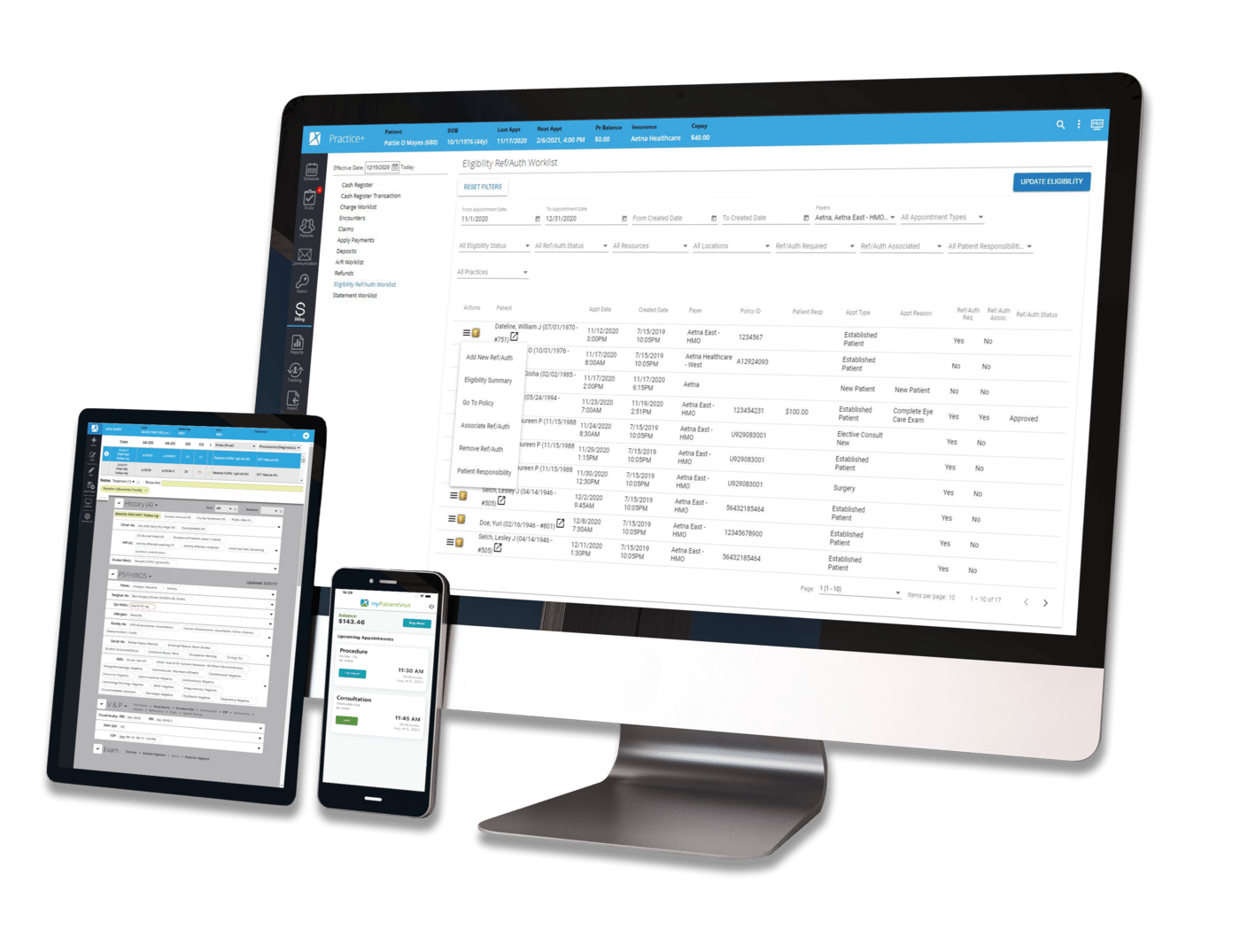Latest Articles
The latest news and information regarding electronic medical records, practice management software, HIPAA, and security from Nextech.

Regulatory & Compliance | Healthcare Technology
By:
Nextech
December 11th, 2014
Have you implemented certified EMR/EHR technology in your specialty practice? The 2009 American Recovery and Reinvestment Act (ARRA) required reimbursement penalties for all Medicare eligible healthcare providers who do not comply with Meaningful Use.

Regulatory & Compliance | Healthcare Technology
By:
Nextech
November 24th, 2014
Most specialty practices set aside ample time for software systems training when implementing new technologies. It’s typically all-hands-on-deck for vendor training during EMR implementation, and many host topic-specific training sessions to support meeting Stage 2 requirements for practices that pursue meaningful use. In addition, most practices that bill any insurance companies are currently focused on training in preparation for the ICD-10 transition. But what about the long stretches in between milestones?


By:
Nextech
November 19th, 2014
ICD stands for International Classification of Diseases. This international standard is used to document all different types of diseases and other health-related conditions in many official medical records. Most member states of the World Health Organization (WHO) started using ICD-10 (the most up-to-date version) since 1994. The United States is one of the few WHO members that still uses ICD-9 and has not yet transitioned to ICD-10.

Regulatory & Compliance | Healthcare Technology
By:
Nextech
November 10th, 2014
For specialty practices large and small, optimizing functionality is a common concern, especially when taking into account future changes beyond Meaningful Use, the transition to ICD-10, and other heathcare mandates.

Regulatory & Compliance | Healthcare Technology
By:
Nextech
November 7th, 2014
The most recent delay in the ICD-10 transition was due, in part, to issues with vendor readiness. Another delay is extremely unlikely, yet readiness remains a potential issue with some suppliers. In fact, a recent survey from The Workgroup for Electronic Data Interchange (WEDI) revealed that only 40 percent of healthcare providers have “complete” solutions for ICD-10, an improvement of just 15 points compared to 12 months earlier, despite the extra development time. Specialty practices that rely on the remaining 60 percent of vendors whose solutions are not complete for ICD-10 should consider two key questions: How can I gauge whether my vendor will be ready in time? What represents sufficiently “complete” vendor software and services?

Regulatory & Compliance | Healthcare Technology
By:
Nextech
October 2nd, 2014
While most discussion of the October 1, 2015, transition to ICD-10 focuses on the billing function, ICD-10’s impact will extend significantly to the clinical side of practices as well. Documentation captured in electronic medical records (EMRs) must give coders information that supports the new coding standard if claims are to be accurate and complete. Fortunately, providers have less learning ahead than coders do. And unlike coders, they don’t have to wait until the transition date to begin actually performing in ICD-10 terms. They can, and should, start soon. Clinicians who are not yet familiar with the impact of ICD-10 on their function can read a two-page summary titled “Effects on Clinical Documentation” in the CMS ICD-10 Implementation Guide for Small and Medium Practices. In addition, each practice will want to form a game plan for readying clinicians for the effect the transition will have on its particular specialty.

By:
Nextech
September 19th, 2014
The differences between ICD-9 and ICD-10 stem from the aims of the newer coding standard. Of particular interest to specialty practices, ICD-10 will much more adequately and accurately describe care and will serve much better for reimbursement purposes, for which ICD-9 was never intended. For ICD-10 to deliver these advantages, it must offer a much larger number of codes. ICD-9’s smaller format restricted its code capacity, which had simply hit its limit. That’s why ICD-9 is being retired on October 1, 2015, in the transition to ICD-10, which affects coding for patients covered by any health insurance, not just Medicare or Medicaid. Specialty practices with insurance reimbursements need to focus only on ICD-10-CM, which is for all diagnosis coding, and can ignore hospital inpatient coding’s ICD-10-PCS.

By:
Nextech
July 30th, 2014
Meaningful use holds a catch for specialists; some requirements are inapplicable to certain specialties, yet there are no “blanket” exclusions for which any affected practices can qualify. CMS publishes a specialist tipsheet that helps in identifying which exclusions may apply, but specialist practices are completely responsible for evaluating “whether they meet the exclusion criteria for each applicable objective.” As specialists who participated in meaningful use Stage 1 prepare to advance to Stage 2, there are two important factors to consider regarding the choice of an electronic medical record (EMR) technology partner: The EMR must be ONC-ACB certified for meaningful use Stage 2. The EMR should also ideally be designed specifically to support the practice’s specialty.